The Photograph by Beaven Tapureta
 He loved. No, he adored, his home country of Mozambique. His wife and his three little children. Abraham the first-born boy with whom he explored the hills and mountains surrounding drought prone Sofia village for palatable game.
He loved. No, he adored, his home country of Mozambique. His wife and his three little children. Abraham the first-born boy with whom he explored the hills and mountains surrounding drought prone Sofia village for palatable game.
Remembrance now thinned him like a toxin. The South African orange shadow peeped through the window as if asking him, “How is it there?” He looked around the house, eyes squinting. The photograph of Abraham his son. He knew it was somewhere in the house. Behind him, the mattress lay on its side against the wall, his Mozambican national identity card and all things which were stashed underneath it messed the floor. All his bags and files were rifled of their contents and lay everywhere like different birds brought down by the shock of a single gunshot. The photo. It’s been months since he last looked at his son’s smiling portrait. The long face which had between the eyes a frown of internal anger, of pain, of dreams and hope. A close-up revealing the fine features of a promising boyhood which now he as a father cannot witness its growth or its joy or sadness.
It had happened rapidly like a powerful spell that swept him towards the borders of his country and he found himself fence-jumping into the far neighbouring greener pasture. The split tore his family’s heart to pieces, but they had to let him go as he was the bread winner. And she took away the children to her family in the village, promising she would wait for him until he comes back from beyond the horizon.
He looked out through the window and tried to remember again where the photo could have disappeared. Days and nights after coming from the King’s Restaurant where he worked as a cleaner the photo saved him from certain mental collapse. A memoir. It was the only thing that reminded him of some special part of him now illusive to places he cannot follow but only can capture in broken snatches.
He walked away from the window and began to look for the photo in places where he had not looked before. He gathered all his books, searched between the pages and in the covers but nothing showed up. He pulled the picture frames from the walls and removed the portraits one by one and still he could not find it. Only then he realized that the drops that had begun falling from his face was not sweat, but briny hot stuff which oozed from the cramped dam inside his heart.
He made a nostalgic snort and later threw himself on the floor; just after he did so, the orange beam of sunlight paled and then darkened. His eyes slowly closed.
“Dad, I want toys when you come back home,” Abraham pulled his father’s hand just to solicit a ‘yes’.
“I will,” he had promised.
And then the next day he had knelt down and kissed his Samora Machel’s beloved soil; a kiss of both endless love and goodbye.
The lorry that took him to a certain border town was packed with passengers of unknown destinations. But he knew he would find two or three people going to the same place with him. Luckily, in the evening at a certain spot, two scruffy youths also running away from the unemployment and poverty at home joined him. Together they paid their dues to the unknown men who carefully escorted illegal immigrants into South Africa; in the dark of night through flooded rivers and valleys. Upon stepping on the South African soil his mind jacked up, and he promised himself to work very hard.
While living in a location mainly occupied by poor foreigners, he did all sorts of cheap jobs just to keep himself going. From the meagre that he earned he saved a few Rands for bus fare back home. Now a suitcase had been near to bursting with clothes, toys, and other stuff he bought for his family using his salary over the past months. How great the day when he goes back home to meet his wife and children!
A maddening noise made him jump to his feet and in a moment he was at the window. The scene outside triggered memories of the war days back home, days of the armed struggle. Explosions, pillars of smoke, machetes digging into human faces, blood like rivers and rivers like blood, headless bodies running! But this was not home. He saw a group of youths brandishing axes, pulling down the shanty houses that had been home to hundreds of happiness-seeking foreigners. He did not know what made him think the approaching angry mob were hunting and killing people like him. But he suddenly knew. Houses were up in flames, women and children screamed on the streets which were now strips of fire. He ran outside.
“No! He’s your brother!” he saw an elderly woman wildly screaming in Xhosa language at a gang of young men mercilessly beheading a Malawian man.
A voice in the mad crowd shouted back at the elderly woman in the same language, “Yet the same brother is taking our jobs and starving my family! Shut up old woman! You enjoyed your days!”
The man was long dead by the time the police fired rubber bullets at the protesting, deadly mob. All of a sudden a real gun shot burst from the middle of the savage mob, and in surprising response one riot police officer doubled over as death embraced him in welcome.
He bumped onto the blazing street to see if there was anyone he knew. Yet no one... not even his Zimbabwean neighbours Martin and Nhamo could be seen. The irate mob saw him panicking and in no time they turned after him, shouting ‘n cursing in their different mother languages. But he ran as fast as he could back to his house where upon entering, the first thing he saw was the portrait of Abraham smiling back at him from the mixed litter on the floor. He immediately went down on his knees for the photo as tears mingled with sweat to make dark oil over his face. His voice refused to be silent. “Abu, my son...” “Abu...” he went on whispering his son’s name even as he walked outside, holding the photo in his hand like a suicide bomb. Everywhere his friends were running for their lives.
The mob kept shouting and singing and wielding weapons of death as they crashed the windows, hurled petrol bombs on the roofs, setting the houses and occupants on fire.
They grabbed him before he could catch up with others running from the horror. Nhamo turned back and saw him slowing down but Nhamo could not stop, only screamed, urging him on, “Run, Alberto, run!”
Nhamo disappeared into unknown corners of safety as Alberto’s legs gave in and he stumbled. First a brick just missed his eye; then they finally descended on him like wild dogs. Gallons of flammable liquid were emptied on him and then a single matchstick set the fire of their excitement, singing revolutionary songs their fathers sang during the apartheid era. They sang in a circle that pitched him in the middle like a burning cross. They sang around the hell that they had created for him. They danced the dance of victory in a short space of time. Alberto rose and fell in flames, his hand poking out of the body of fire holding a smiling photograph. Then his burnt body surged into ashes, dreams into smoke and the photograph diminished just as his soul flew back home, to other birds waiting in a nest of hope, and yet of fear.
(In memory of all victims of Xenophobia)
The Photograph was written by Beaven Tapureta.
Copyright Beaven Tapureta 2009.

Beaven is a zestful creative writer, journalist, poet. Beaven was nominated for the NAMA 2009 in the Media Print category, for Budding Writers Association of Zimbabwe (BWAZ) Magazine & Freelancer.


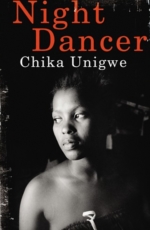

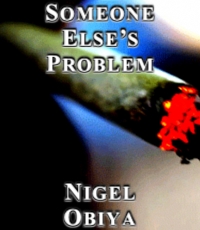

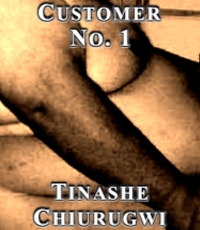
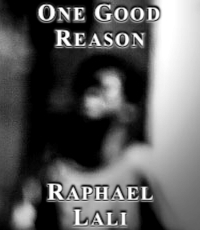
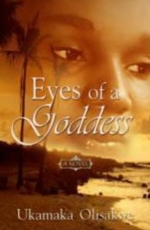

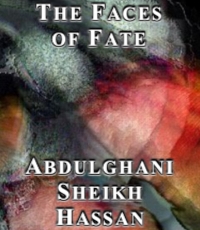

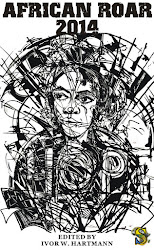
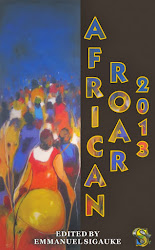
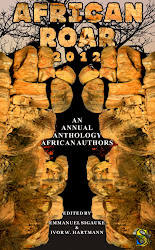

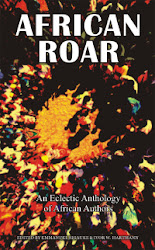

4 comments:
My brother, you have captured the xenophobic attacks very poignantly, and as we all watch the news about the Free State situation, we hope we will never see these scenes repeated again - the hatred of one human being by another that led to the scenes you describe in your story must never again occur. Well done to you for reminding us!
This is a moving story, well depicted. I like the descriptive ability of the author to show us what we might otherwise forget - the evils of violence.
This is definitely a moving story with a tragic end. The protagonist, Alberto, is depicted as a man with a tremendous love for his country and for his son - Abraham.
Alberto had the courage to travel to distant lands so that he could earn a living to support his family. Unfortunately he is caught up in the violence and wickedness of the land that was supposed to bring him the wealth and new start in life that he had hoped for. Sadly, his dreams are torched in flames.
He plans to travel home to visit his family. However, he does not make it home with his suitcase full of clothing and stuffed toys for his beloved. These are things bought with the money he sacrificed to earn.
In true brilliance the author does not make Alberto suffer without comfort. Alberto dies with the symbol of what he held dear to his heart - the photograph of his son.
A truly gripping story.
Now this is my kind of story and the sort of film I would like to make-the side of Africa that has been with us for a while and we don't seem to be in a big rush to see it change unless we are actually deep in it as victims. When others tell this story, we accuse them of racist bias, yet we are quite happy to ignore it. But the way you tell it, Alberto did not have a prayer, but he comes across as a strong, solid character. Now, that's what I call writing
Post a Comment